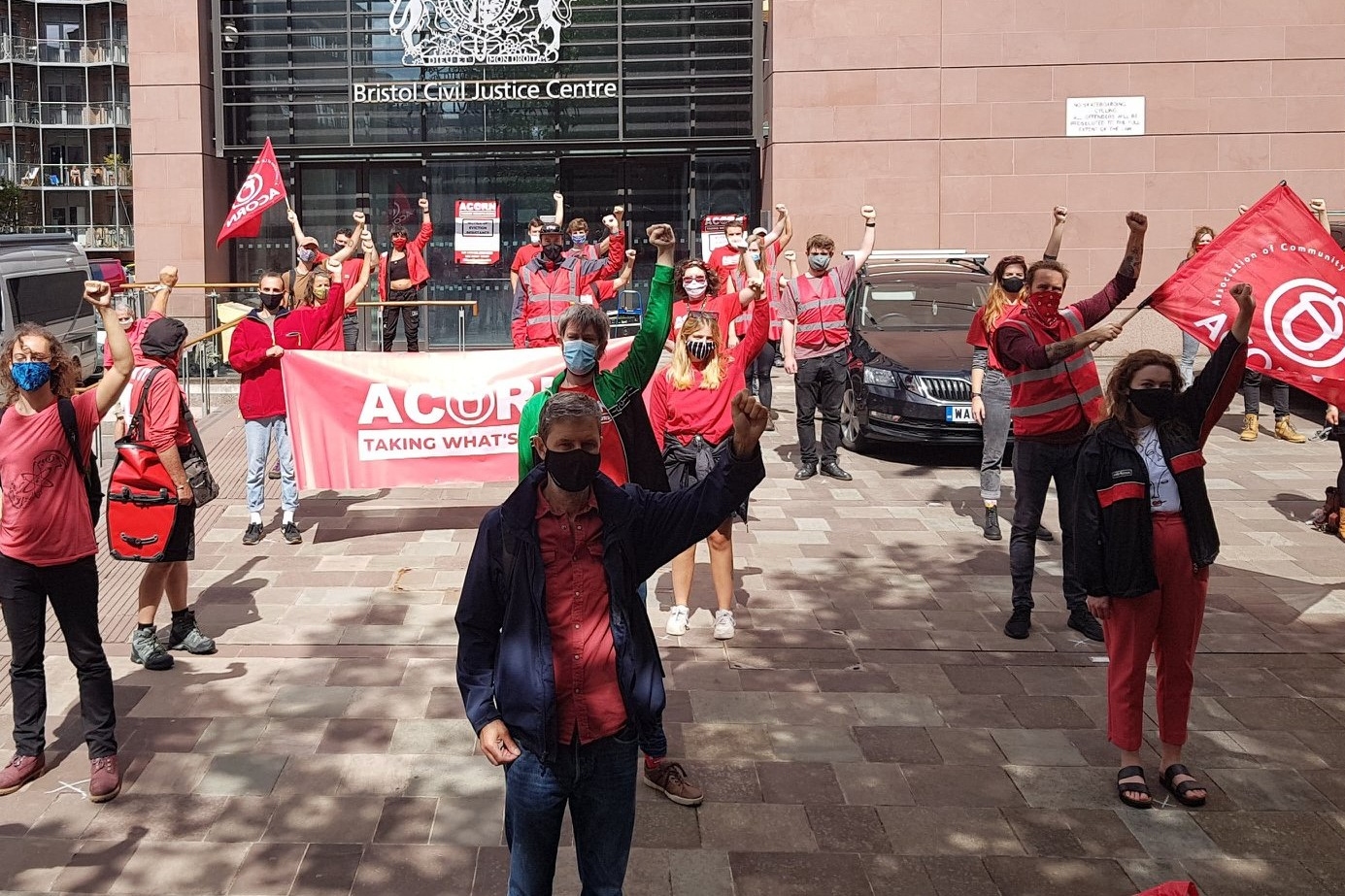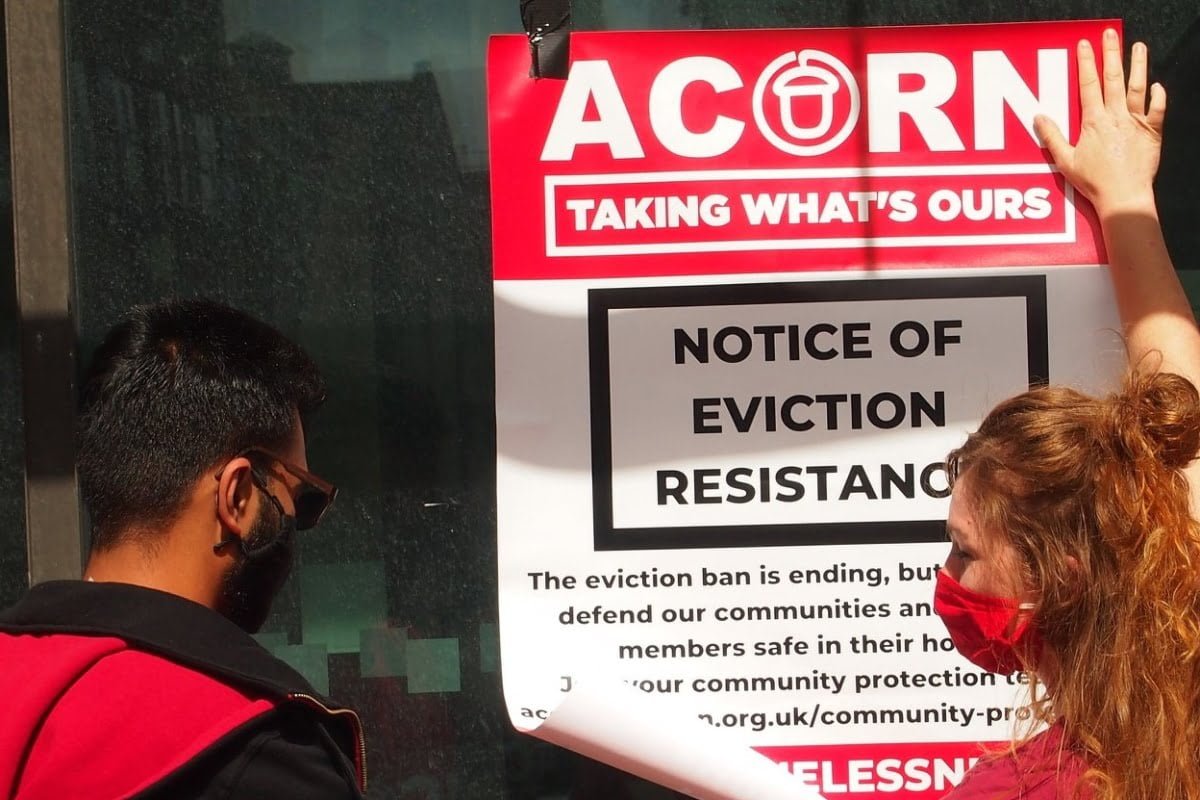The Tories have U-turned once again, extending the ban on evictions by a month. But millions of renters still face uncertainty and hardship. The labour movement must fight for a socialist solution to the housing crisis.
Since the beginning of the COVID-19 crisis, tens of thousands of tenants around the country have fallen into even more precarious living conditions. As a result, the London Renters Union, founded in 2018, has experienced a significant growth in this period.
When the pandemic hit Britain in March, the scale of the crisis forced the Tories’ hand, with the government issuing a temporary ban on evictions. Had this not been done, the level of evictions would have been out of control.
In any case, landlords would have had difficulty finding replacement tenants. There is therefore nothing charitable about this policy. Much like the furlough scheme, it is a case of temporary life-support for the system; an attempt to try and hold back social and political chaos.
Battle won
The government’s temporary ban on evictions was due to be lifted this week, on Monday 24 August. In response, the London Renters Union (LRU) organised three protests across the capital. And similar demonstrations were also held in cities all over the country, called by ACORN, the community activism network.
Last Friday, however, the government backtracked on this policy. Tory ministers announced that the ban on evictions was to be extended for another four weeks; and the legal eviction notice was to be extended from 3 months to 6 months.
Such U-turns are becoming a characteristic feature of this crisis-ridden government, in the face of growing militancy amongst workers, tenants, and students.
Arrogant and out-of-touch, Tory politicians are finding that every reckless decision they take on behalf of the bosses and the establishment provokes uproar and indignation amongst ordinary people. The threat of social unrest is piling on the pressure.
This should be regarded as a battle won. But the war is far from over. Renters’ unions – and indeed tenants all over the country – recognise that the housing crisis runs deep. The pandemic has only exacerbated existing problems.
Radical action
The demonstrations organised by the LRU and ACORN went ahead, despite the extension. In London, protests were held at the courthouses in Hackney and in Stratford, and another at Catford Broadway. The union made the following statement:
Renters now have a six month eviction notice period.
It’s a huge step forward won by people power.
We need to keep pushing. The pandemic isn’t our fault. Renters need protection from eviction and arrears.
We say: cancel the rent debt and make the eviction ban permanent.
— London Renters Union (@LDNRentersUnion) August 21, 2020
Millions of workers – including those in precarious self-employment – have spent months living on 80% of their usual income, as a result of the furlough scheme. Many others have suffered severely reduced working hours, or have been made redundant.
Needless to say, the financial burden is being widely felt. A survey by housing charity, Shelter, indicated that around 230,000 tenants are now in debt to their landlord since the pandemic started. The charity also stated that around 170,000 tenants have been threatened with eviction since lockdown began.
Renters’ unions have played a laudable role in resisting these despicable threats with direct action, campaigning, and legal support. Furthermore, such unions are explicitly radical, and do not confine themselves simply to defensive struggles on a case-by-case basis.
The political line at the demonstrations on Monday condemned landlords in general. Activists chanted: “We don’t need landlords, landlords need us.” And the renters correctly argued that private rent is nothing more than income acquired from the labour of others.
This class-based perspective is the necessary first step. The next is to find a political solution.
Mass campaign
 A strong network of renters’ unions is vital for organising tenants and demanding rent controls, bans on evictions, and better legal representation. But such gains will only ever be temporary under capitalism: a system based on private property and profit; a system stacked in favour of the big landlords and bosses.
A strong network of renters’ unions is vital for organising tenants and demanding rent controls, bans on evictions, and better legal representation. But such gains will only ever be temporary under capitalism: a system based on private property and profit; a system stacked in favour of the big landlords and bosses.
Rent controls can be reversed. Reforms can be removed. And, most importantly, the severe shortage of housing remains. The fact is that the economy is in a deep crisis, and the capitalists cannot make a profit from affordable housing. Union activism alone cannot change this.
The type of reforms demanded by these radical renters’ unions pose the question: why not do away with landlordism as a whole? In fact, this seems to be desired by many of the union’s activists.
Only the organised working class have the power to make this a reality. Renters’ unions should therefore join forces with the trade unions and local Labour parties in order to create a mass grassroots campaign across the country, demanding a socialist solution to the housing crisis.
This should involve demands to nationalise the big construction companies and property developers under workers’ control; to nationalise the banks, land, and major management companies; and for housing associations to be run by tenants committees.
On this basis, a mass programme of social housing construction could be undertaken. And power could be taken out of the hands of the landlords and capitalists, and placed into the hands of working-class communities.
As the LRU correctly states, the solution to the housing crisis is to “reboot the housing system and win homes for people, not profit”.
Fighting leadership
The recent growth of renters’ unions is a welcome development. It is yet another sign of the radicalisation that is taking place in society, amongst workers and youth.
These campaigns must find a way of connecting with the workers’ movement. And, in turn, to bring pressure to bear on the Labour leadership to come out in support of workers and renters, instead of siding with the landlords and bosses.
One member of the LRU was giving out leaflets for the Labour Homelessness Campaign. These leaflets promoted demands such as “secure homes for all; no COVID evictions; no austerity; no-cuts budgets; and no more empty houses.”
There are plenty of groups pushing similarly radical campaigns. There is plenty of appetite for class struggle amongst workers and youth. But there is a lack of a fighting leadership at the top of the labour movement.
The Tory U-turns of recent weeks prove that militancy pays. What is needed is a mass movement with a determined socialist backbone that can unite these struggles to transform society.
Patrizia Paolini, Hackney resident and member of @LDNRentersUnion speaking outside the Gee St. Courthouse about her experience of living under the spectre of eviction.
“The right to have a place to call home is a universal need and a value that defines a civilised society” pic.twitter.com/eu0YUtNbda
— Alex Armitage (@alexjarmitage) August 24, 2020
Community activists organise against evictions in Bristol
By Kevin Ramage, Bristol West CLP
 Fifty Acorn members protested against evictions outside Bristol County Court on Saturday. The protest was followed by a training session on building Community Protection Teams to resist evictions.
Fifty Acorn members protested against evictions outside Bristol County Court on Saturday. The protest was followed by a training session on building Community Protection Teams to resist evictions.
Two members, Matilda and Ali, spoke of their recent experience of resisting eviction threats with support from ACORN’s Community Protection Team.
The Tory government’s latest announcement has merely postponed by a single month the threat of evictions faced by 250,000 people.
This makes action on two fronts vital. Firstly, as groups like ACORN are doing, we need to train and organise teams to mobilise and resist evictions, making court bailiffs’ work as difficult as possible.
At the same time, housing campaign activists also need to turn their fire onto the Labour leadership to demand that they fight for:
- An immediate end of Section 21 ‘no fault’ evictions in England and Wales.
- The complete waiving of all COVID-19 related housing debts.
- Giving powers to local authorities to control rents, set at affordable levels relative to local average incomes.
- A socialist housing policy to build decent homes for all, and to bring tenanted property under local public ownership and control.






